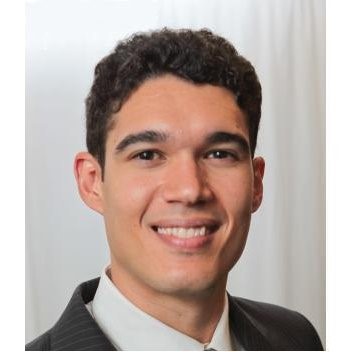STEM Career Profile: Dr. George Bezerra
February 11, 2016 -

A.George Bezerra, Data Scientist at TripAdvisor
Q. What does your organization do?
A. TripAdvisor is the biggest travel website. It provides reviews of hotels and places you can visit, and you can also book hotels, restaurants, flights – It covers all the different sections of traveling.
Q. What do you do on a daily basis?
A. As a data scientist, my main job is to build machine learning models (i.e. artificial intelligence) to predict trends, automate tasks, and solve problems that are hard for humans to solve. Some examples are recommender systems (e.g., recommending hotels and places to visit), fraud detection (e.g., detecting fake reviews), and automated bidding in advertisement campaigns. These are all essential tools for the website and the company in general.
Q. What best part of your job?
A. Good question! It’s hard to say one specific thing, but creating the models themselves is the fun part. The process is very scientific. You have to read papers and research about the possible ways to solve your problem, learn about the tools that are out there, collect and analyze the data, and once you have a good approach in mind, proceed with building the model. A big part of my job looks like doing academic research, but it’s more applied. Instead of building something to impress the reviewers, we need to build something that works.
Q. What degrees have you earned and from where?
A. A Bachelors in Electrical Engineering and a Masters in Computer Engineering from University of Campinas, Brazil, and a PhD in Computer Science from UNM.
Q. When you were working towards your first degree, did you ever imagine that you would end up where you have?
A. No, not at all. At the time I knew I wanted to pursue an academic career and a PhD degree, but I didn’t know I was going to live in the United States, nor did I ever dream I was going to end up at MIT.
Q. What took you from your first degree to the point you are now? In other words, what was your career path?
A. While getting my first degree, I wanted to be a professor, so decided to pursue a masters and PhD degrees. However, by the end of a 6-year long PhD I was feeling like I wanted to do something different. I did a post-doc at MIT in a somewhat different area and got involved in big data and data science. During this time I collaborated with several partners in the industry and I realized that they were solving some of the most interesting and challenging problems of today. I saw an opportunity for a career change and I decided to take the risk. I am pretty happy that I made that choice.
Q. What were some of the significant challenges you encountered along the way?
A. In academia I was working too hard and I didn’t feel like my work was having the impact I wanted. I was frustrated with the review system for publications and grants and I saw myself working hard in order to increase my number of publications, not because I though the work was interesting and fun.
Q. How did you overcome these challenges?
A. It took me a while to understand this, but the right solution for me was to change career paths.
Q. What would you say are the key milestones in your career pathway?
Q. What advice would you give to an undergraduate student in a STEM field?
A. In general, that depends on what the student wants. But here is something I learned. Keep your options open. If things are not working out the way you expected, don’t be afraid to branch out and look for other possibilities. In my case, I was stuck in academia even though I wasn’t enjoying it anymore, and I never thought the industry was a valid option. Most academics have a very naïve idea of what the industry looks like; in general, we dread the idea of having a boss and working regular hours. But as I discovered, the working hours in the industry are more productive and you end up with a lot more free time for yourself, there are plenty of exciting problems to work on, and the impact of your work is more substantial. Plus, the pay is better and you have more flexibility to choose the city where you want to live. If you’re not happy where you are, don’t be afraid to make a change.
Q. Is there anything else you’d like to add that we haven’t addressed?
A. It’s good to know in advance that the career path is not necessarily linear. This is definitely my case, I changed areas more than once, and in the end, it is because of this varied background that I was able to get my current job, which I love. They say data scientists are unicorns because they combine so many different skills in a single person, which is really hard to find. We are now in high demand in the market and there are tons of job opportunities out there. I think that this turned out to be a great thing in the end.
 <-- Click
<-- Click